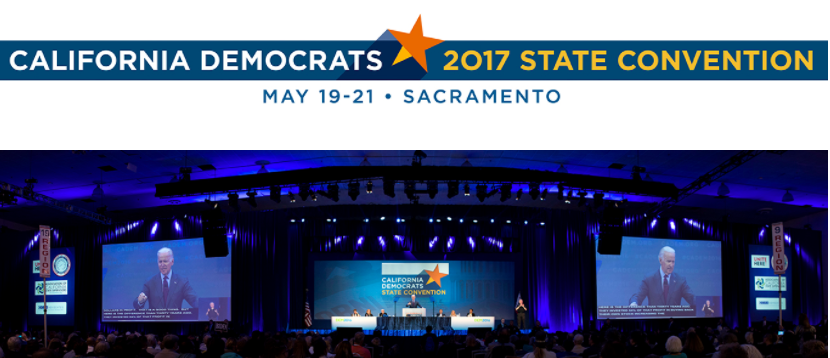In response to the conservatism of many Republicans, Bernie Sanders supporters called for a “re-liberalization” of the Democratic Party at the California Democratic Convention hosted in Sacramento. The self-dubbed “Berniecrats” implied that the Democratic Party needed to continue fighting for stronger reforms.
Hosted at the Sacramento Convention Center, the convention was organized with the intent to elect a new administration for the California Democratic Party and establish goals for the future.
This year, Eric Bauman, a party insider, was elected to be the new chairman for the party.
On the other hand, his opponent, Kimberly Ellis, who supported stances taken by Sanders, was reluctant to accept the victory of Bauman. Her followers called for a recount of the votes, and insisted that Ellis should have won the position.
In response, Bauman in a statement to Ellis supporters said, “There is no denying that there is a problem when so many of our hardworking activists feel that they are not welcome within our Party and that they have been slighted and shut out of the process.”
Daniel Vignanker, a junior, believes that Berniecrats are treated differently by other Democrats because they support beliefs that are unprecedented in party ideology.
“I think people call the Berniecrats too radical because they associate Bernie with socialism,” said Vignanker. “Most of the time, people don’t want to associate with the extreme end of the political spectrum, and because Sanders does this, many are wary of supporting him and his followers.”
After Sanders lost the Democratic nomination to Hillary Clinton in the 2016 presidential election, many Berniecrats claimed that Clinton supporters treated them with prejudice.
“[Berniecrats] are seen as challenging the status quo,” said Ethan Miller, a senior who supports Sanders. “They are seen as extremely vigilant, and that scares those who are glad to do the bare minimum to support liberal politics.”
During the convention, pro-Sanders activists interrupted Democrats who they deemed to be “corporation-oriented” and called for their removal. Some activists even threatened to leave the party unless Democrats pushed stronger liberalism.
“The Democratic establishment clearly is unenthused by the influx of new progressive voices,” said Miller. “But if they don’t want to keep losing elections, they need to accept progressive populists into the party with open arms.”


